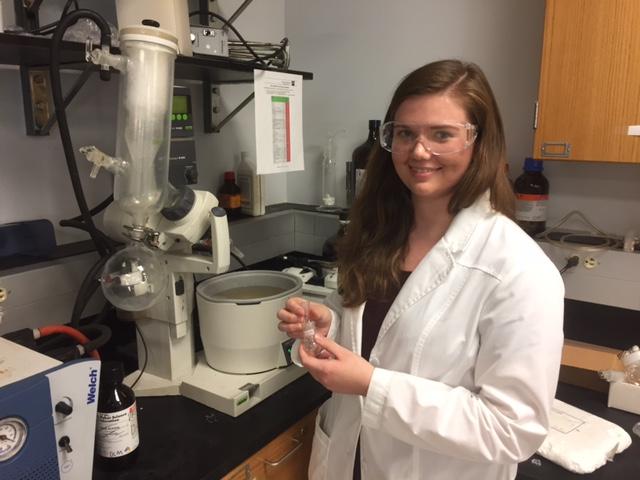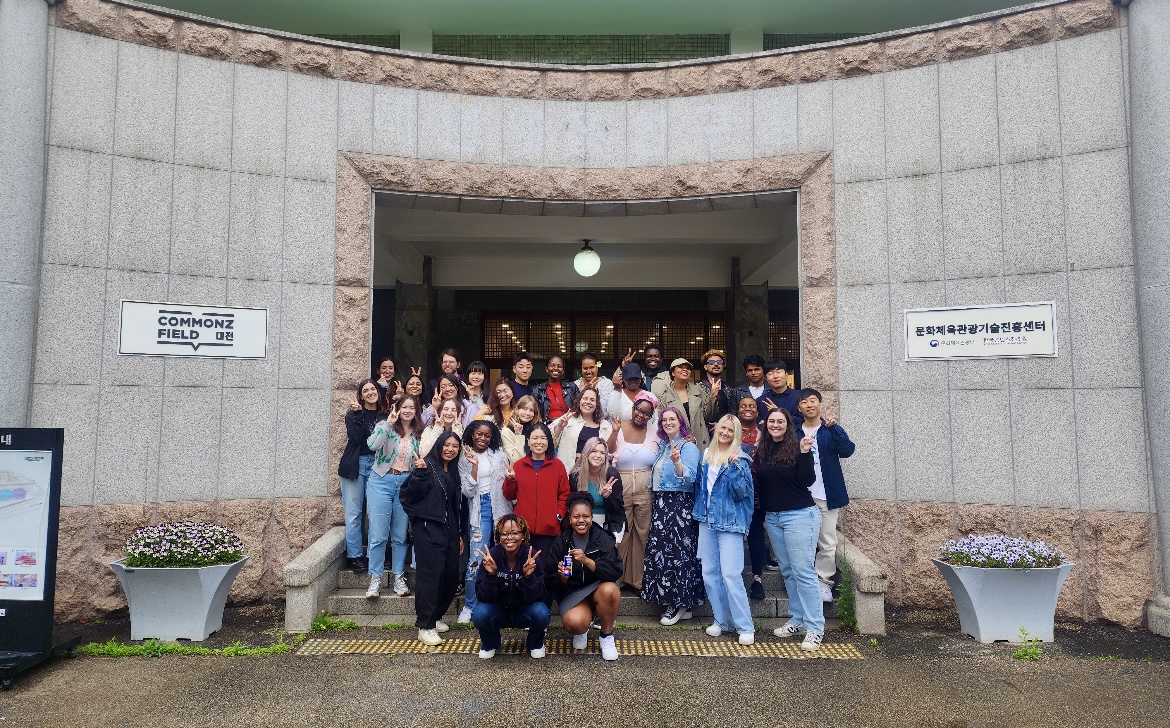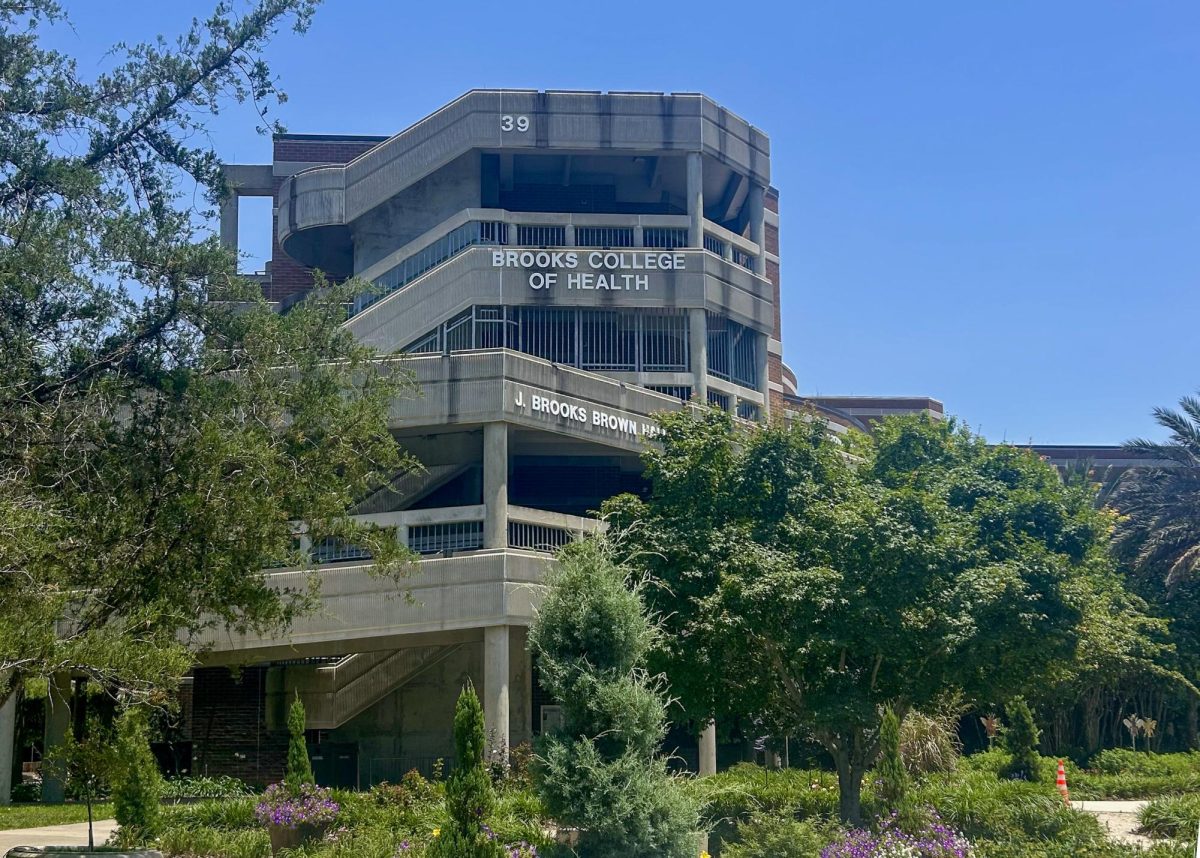The Curry Cure
Eating at your favorite Indian restaurant may leave your tongue on fire, but that fire is also trying to burn away cancer cells. With career-making research from UNF chemistry students, curing disease with the spice may someday be successful.
Turmeric is the hot topic in Professor Kenneth Laali’s lab. That’s the spice found in various Indian cuisines, like curry, and is thought to have natural cancer-fighting properties. The problem is the human body metabolizes turmeric far too quickly for any effect to take place.
Laali and his three research students are trying to figure out a way to modify turmeric so humans can enjoy more of its health benefits as well as its taste.
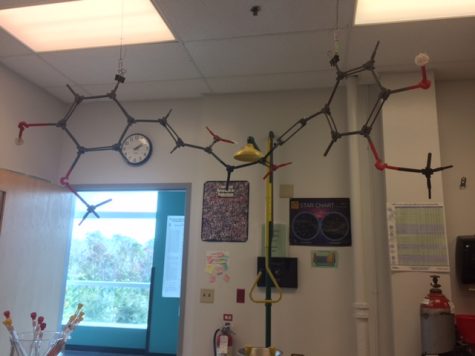
Sebastian Correa Smits, a junior chemistry major, is waist deep in curry right now, synthesizing a near-endless amount of derivatives of the spice.
“We are changing the molecular structure to make it more absorbable, in essence, to work as a drug,” said Correa Smits.
Another member of this research team is Steven Pietrusza. He describes himself as the new guy on the team, even though he is a post-baccalaureate student from Jacksonville University. His main job is recreating the experiments of others in an effort to get the same results. He describes it as “playing” with the compounds in the spice.
The lab is filled with test tubes and beakers containing a rainbow of different colored spicy powders. “There’s basically a limitless amount of projects,” Pietrusza said.
After adding derivatives of compounds to the turmeric, the research team sends it to Mayo Clinic where it’s tested for its effectiveness as a drug.
In addition to the importance, Correa Smits and Pietrusza agree that the research they’re doing is a tremendous opportunity for them. They both want to attend medical school after graduation, and the experience they’re getting is invaluable.
“The best part is the experience we get,” said Correa Smits. “We are doing graduate level work in chemistry so that when we go [into our careers] we will have a lot of experience compared to everyone else.”
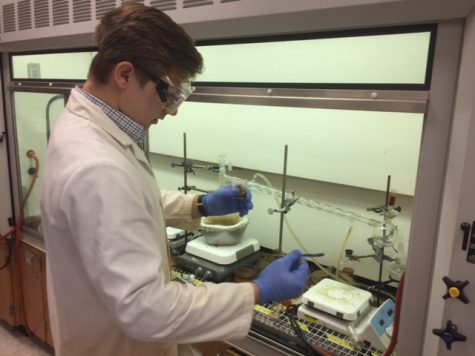
“I like chemistry, I want to be good at it and I felt like I didn’t get that at JU,” said Pietrusza. “This is one of the few places on a college campus where you’re doing real science”
Professor Laali is crediting Correa Smits as a coauthor on his publications, something that rarely happens for an undergraduate student. Chemistry Senior Angela Zwarycz is also about to have her work published in a The Journal of Fluorine Chemistry.
“This is definitely up my alley,” Zwarycz said. After graduating, she wants to go to pharmacy school and do research and development on medicine, which is the same sort of work she’s doing here at UNF.
All three of these students are excited about the future of the research, but they are perhaps looking forward to the future of their careers even more. The research they’ve done on this hot spice is work they described as more fulfilling than any of their previous classes.
“We’re doing new stuff here and it’s very exciting,” said Pietrusza.
__
For more information or news tips, or if you see an error in this story or have any compliments or concerns, contact editor@unfspinnaker.com.



